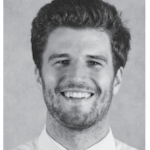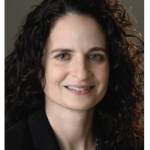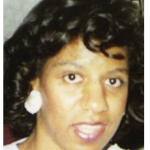Meg Ruyle, ASA Graphic Designer/Production Coordinator

Daniel Elchert

Erin Twomey-Wilson

Esther Pearson
The Committee on Career Development provides support and information about career decisions to statisticians, from technical skills to networking, communication, and developing an online presence. Three members of the committee offer insight into another critical focus of career development: how to engage in self-care as you grow as a statistician.
Self-care is often thought of as an indulgence or one-time relaxation event. How do you define self-care?
Daniel Elchert: Self-care is an ongoing process of proactively taking care of oneself to improve well-being and resiliency. Your health and well-being are very important!
Erin Twomey-Wilson: I define self-care as taking the time to listen to your body to see what it needs. That could be taking some time to quiet your mind, rest, or get some exercise.
Esther Pearson: Self-care is an ongoing practice. In each phase of a career, you must identify the points of challenge and stress. After identifying the points, you must determine their triggers for you and defend against them. How? I recommend a self-care routine for good physical, mental, and emotional health that includes exercise.
When in your career is it most important to engage in self-care?
Elchert: Self-care is important during every career stage. In my opinion, self-care practice is especially useful during periods of career transition (e.g., after graduating and starting or ending a professional role).
Twomey-Wilson: It is very important to engage in self-care throughout your career. Life can get stressful no matter what stage of your career you are in.
Pearson: It is important in your career to engage in self-care in the beginning, the end, and everything in between. In other words, engaging in self-care is on-going throughout one’s career.
How does remote work change the need for a self-care routine?
Elchert: Remote work is increasingly common for statisticians. If you are working remotely from home, developing a self-care routine may help you set healthy boundaries between when you are working and when you are not working.
Twomey-Wilson: Remote work can allow more time for self-care. Time that would be spent commuting can be used for self-care. You can get in that workout, call a friend, read a book, etc.
Pearson: Remote work allows for relief from travel and traffic hazards. But it can engage reflection on “FOMO,” or “fear of missing out.” So make a concerted effort to keep in touch with your manager and peers at work.
In what ways can self-care affect your mental health?
Elchert: All people experience stress (at least, I do!). Self-care is one tool you can use to effectively respond to life’s stressors while promoting your overall health.
Twomey-Wilson: Self-care can clear your mind to give you a chance to figure out problems or just rest.
Pearson: Self-care is not selfishness. It is being selfless. It is caring enough about others to care about yourself. That protects your mental health through cherishing each accomplishment and not just checking off an item completed. Celebrate each accomplishment with self-congratulations. This boosts your mental health.
Why is it important to engage in self-care during a job hunt?
Elchert: Searching for a job oftentimes requires a lot of time and energy. As a result, it is important to engage in self-care during your job search process and show yourself compassion as you look for a professional opportunity.
Twomey-Wilson: Self-care can ease anxiety, help you get more rest, and reduce stress. All of these things can help you think faster and be more confident.
Pearson: Job hunting can be discouraging. So remember the “sales and marketing” axiom: “every ‘no’ is one step closer to a ‘yes.’”
How can self-care help you view career disappointments as feedback, rather than a setback? What would that look like?
Elchert: Everyone encounters disappointments at some point during their career. Self-care can help to relieve stress and replenish your energy levels. This means when you encounter a challenge, a regular self-care practice can help you respond effectively to difficult feelings like being disappointed.
Twomey-Wilson: This looks like forgiving yourself and ignoring/stopping the negative self-talk. This could be talking to a friend, relative, or therapist.
Pearson: Disappointments can be viewed as “dis” (not) “appointment” (designated assignment). In other words, the job, promotion, or career aspiration that was not obtained was not your designated assignment. Keep looking.
What are some examples of self-care?
Elchert: Self-care can take many forms! I enjoy breaking up my workday by taking short breaks outside. Another self-care practice I enjoy includes turning my phone off in the evenings to set healthy boundaries with work tasks.
Twomey-Wilson: Some examples of self-care are exercising, taking a long bath, going for a walk, meditating, or going to a salon/spa. It can be so many things!
Pearson: Surround yourself with encouraging people. Pessimistic people should be kept at a distance.
What self-care practices would be especially important for someone looking for a job or just beginning a job?
Elchert: Be compassionate and kind to yourself. There is a lot to learn when looking for or starting a new job. It’s okay if you don’t know it all!
Twomey-Wilson: Exercise and get enough sleep. Also, have someone you can talk to throughout the entire process.
Pearson: On your list of to-dos, include: 1) stopping and breathing; 2) looking for the humor in each situation and laughing; and 3) encouraging someone else who is looking for a job or beginning one.
How can you develop a self-care routine when you are busy?
Elchert: Start with a small, realistic goal. For example, start by setting a goal to take a 15-minute break at some point during each workday, such as by calling a friend or stepping outside. When it comes to self-care, no goal is too small!
Twomey-Wilson: You find things you really enjoy doing. No matter how busy you are, you will find time to do it. Everyone has at least 15 minutes to do something. My motto is “something is always better than nothing.” A big first step would be to put the phone down. Too much time is wasted scrolling through social media.
Pearson: Self-care begins with self-discipline. If you can discipline yourself to be busy, you can discipline yourself to relax and rest. The saying “if you want to get something done, give it to someone who is busy” indicates busy people have disciplined themselves to get things done. So use some of that self-discipline to relax and rest or learn to “just say no.”



Self care is when you are constantly listening to well-being and being able to avoid what you love, but is destructive to your overall being, and taking courage to accept what what you do not love, but is good for your overall being.
Being a statistician means taking care of yourself, keeping work and personal lives in harmony, putting health first, and learning constantly but sensibly. It also means coping with stress, networking, setting achievable targets, seeking feedback, disconnecting from work, being mindful, pursuing interests, and reflecting on your journey. These practices support your well-being and professional growth.